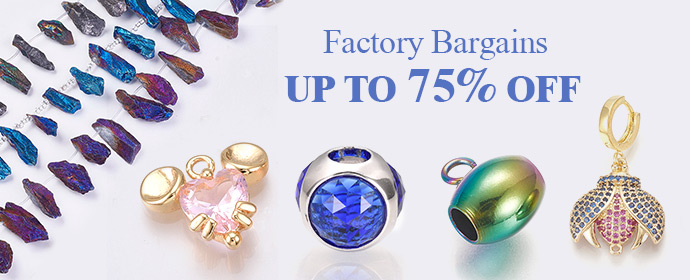It might not be easy to navigate the world of cosmetic products if you have sensitive skin. Because so many products are available, it’s essential to know which ones to avoid irritation or allergic reactions.
This article will assist you in protecting your sensitive skin and making well-informed decisions. The incorrect substances can bring on redness, irritation, or even more severe reactions.
How do you traverse the wide world of beauty products to maintain the health and happiness of your sensitive skin? Let’s examine the substances and items you should avoid to preserve a radiant face free of redness.
Comprehending Sensitive Skin
It’s critical to use patch testing to determine your unique triggers and to select skincare products with calming elements like chamomile or aloe vera.
Furthermore, choosing hypoallergenic and fragrance-free products can significantly reduce irritation for sensitive skin, guaranteeing a balanced and healthy complexion.
What traits are present in sensitive skin?
Skin that is sensitive to the environment and products can respond more strongly. It might appear burning, itching, redness, or dryness, frequently reacting to specific stimuli. Environmental variables, hormonal fluctuations, and genetics can influence skin sensitivity.
Things that can make someone sensitive
- variations in the weather
- dangerous substances
- Scents
- Irritants
Frequently Avoided Ingredients
Remembering some standard components that are best avoided while choosing cosmetic goods is essential. Among these are phthalates, which have been connected to reproductive and developmental harm, and parabens, which are recognized for their possible ability to affect hormone levels.
Sulfates
Sulfates are frequently found in cleansers and shampoos. Examples are sodium laureth sulfate (SLES) and sodium lauryl sulfate (SLS). They may deplete the skin of its natural oils, causing irritation and dryness.
Parabens
Preservatives called parabens are present in a variety of cosmetic products. In certain people, they have been connected to allergic reactions and hormone disturbance.
Consumers and the cosmetics industry are now paying more attention to this, and many manufacturers are choosing to use paraben-free formulas in response to consumer demand for safer options.
Phthalates
Phthalates are frequently added to cosmetics to improve their texture. Nevertheless, they may irritate the skin and interfere with hormone function.
Scents
One of the most common causes of skin sensitivity is synthetic scents. They may include a variety of substances that cause allergic responses.
essential oils
Essential oils, even though they are natural, have the potential to irritate delicate skin. They are frequently used for their scent; however, those sensitive to them may experience adverse effects.
Denatured alcoholic beverages
Because alcohol dries quickly, it is frequently utilized in skincare products. Denatured alcohol, however, can be abrasive and drying, irritating the skin.
Alcohol isopropyl
Like denatured alcohol, isopropyl alcohol can remove natural oils from the skin, leaving it feeling dry and irritated.
tiny beads
Frequently present in exfoliating treatments, microbeads can irritate and soothe sensitive skin. They may intensify sensitivity and result in microtears.
rough-cut scrubs
Large-particle, coarse scrubs may be excessively abrasive for delicate skin types, causing redness and irritation.
Selecting Secure Substitutes
Aloe vera
Aloe vera, well-known for its calming qualities, is kind to delicate skin and reduces inflammation.
Chamomile
Because of its anti-inflammatory qualities, chamomile helps relieve inflamed skin. It is frequently present in skin-sensitive goods.
Oatmeal
Sensitive skin can benefit from the natural hydration and calming properties of oatmeal. It is present in masks, moisturizers, and cleansers.
Hypoallergenic products
The purpose of hypoallergenic product formulation is to reduce the possibility of allergic responses. They are appropriate for delicate skin because they don’t include harsh substances or common allergies.
Whether it’s a moisturizer, mascara, or foundation that’s hypoallergenic, these skincare and makeup products prioritize your skin’s health while meeting various demands. People can comfortably indulge in beauty rituals without sacrificing comfort or safety by selecting hypoallergenic products.
Testing patches
It is vital to conduct a patch test before utilizing a new product. To check for any responses, apply a small amount of the product to a small skin area and wait a day. This makes it easier to find any allergies before slathering the cream all over the face or body.
Recommendations from Dermatologists
For individualized guidance, think about speaking with a dermatologist. They can determine your skin type and make individualized product and ingredient recommendations based on your needs.
Advice for a Skincare Routine
Light Cleaning
Use mild cleansers without fragrances to wash delicate skin. Hot water can remove the skin from its natural oils, so stay away.
Safe cosmetic products, such as those containing natural, organic, or non-comedogenic substances, nourish and effectively cleanse the skin, leaving it feeling renewed, glowing, and free of any potential dangers. The first step to having healthier, happier skin is utilizing safe, gentle products during our skincare routines.
Hydrating
Select a moisturizer that hydrates your skin without clogging pores and is mild and non-comedogenic. Keep an eye out for components like glycerin and hyaluronic acid.
Any skincare regimen should include moisturizing, but utilizing safe cosmetics makes it even more critical. Choosing makeup free of irritating ingredients and dangerous chemicals is good for the environment and the skin.
Sun Protection
Use a broad-spectrum sunscreen with an SPF of 30 or more to protect delicate skin from the sun’s rays. Particularly while you’re outside, reapply every two hours.
Including these products in skincare routines guarantees a proactive approach to preserving healthy, glowing skin while protecting against the sun’s potent effects.
Products range from foundations to daily moisturizers. People who choose sun-protective cosmetic products wisely take care of their skin and encourage the health and vitality of their skin in the long run.
Considerations for Makeup
Choose cosmetics with the labels “fragrance-free” and “non-comedogenic.” Instead of thick foundations, choose tinted moisturizers or powders with mineral bases.
To read more blog: Which Cosmetic Products are Cruelty-Free, and How Do You Use Them?
Final Thoughts
Understanding potential triggers and paying close attention to details are essential when caring for sensitive skin. People with sensitive skin can keep their complexion healthy and minimize irritation by avoiding physical exfoliants, alcohol, scents, and harsh chemicals.
Patch tests and cosmetic products with mild, natural components can reduce the possibility of adverse reactions. Always consult a doctor for specific skincare advice if you need more clarification.
Recommend0 recommendationsPublished in Makeup, Skin Care






